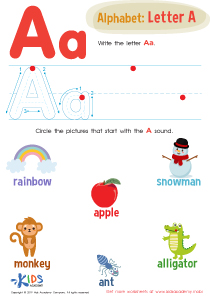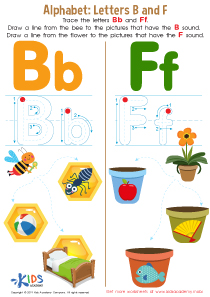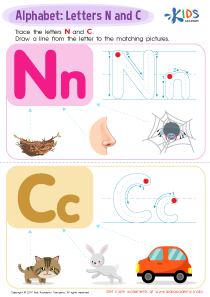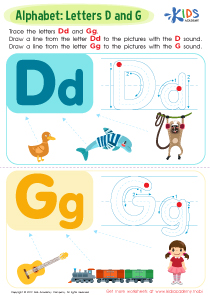Letter K Worksheets for Ages 4-7
4 filtered results
-
From - To
Our Letter K Worksheets for Ages 4-7 make learning the alphabet a fun and engaging experience. Specially designed to captivate young minds, these printable worksheets offer a variety of activities to help children recognize, trace, and write the letter K. Engaging illustrations and interactive exercises encourage letter formation, phonics, and early reading skills. These resources support educators and parents in developing foundational literacy skills in a playful and effective manner. Catered for preschool through early elementary grades, our worksheets provide an excellent resource to motivate and inspire every young learner’s educational journey.
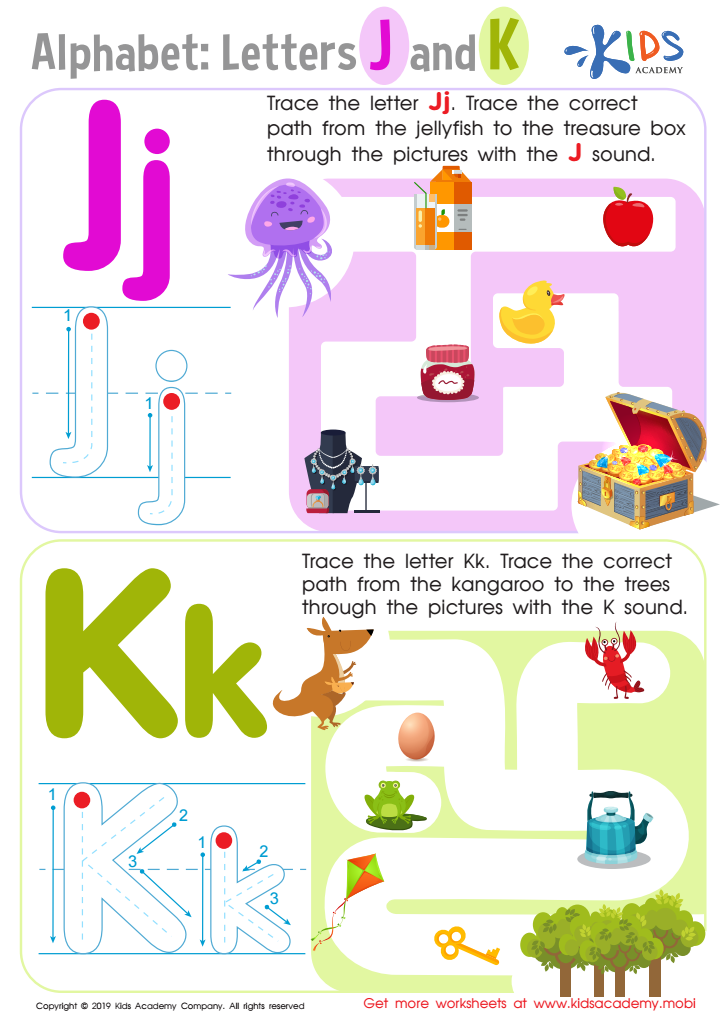

Letters J and K Tracing Worksheet
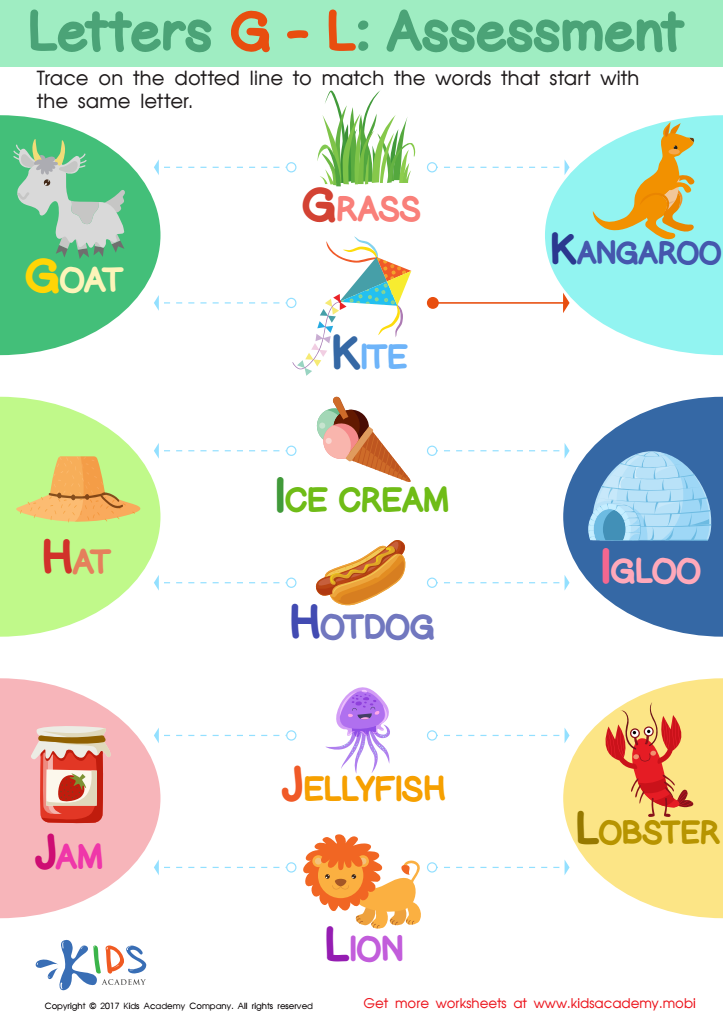

Letters G-L Worksheet
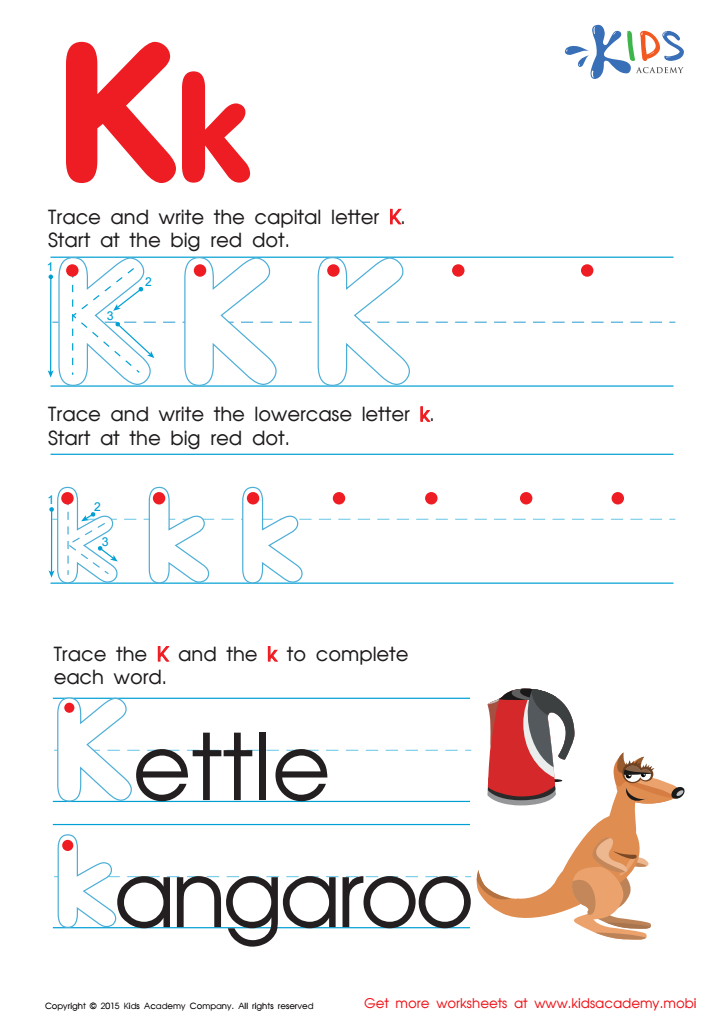

Letter K Tracing Page
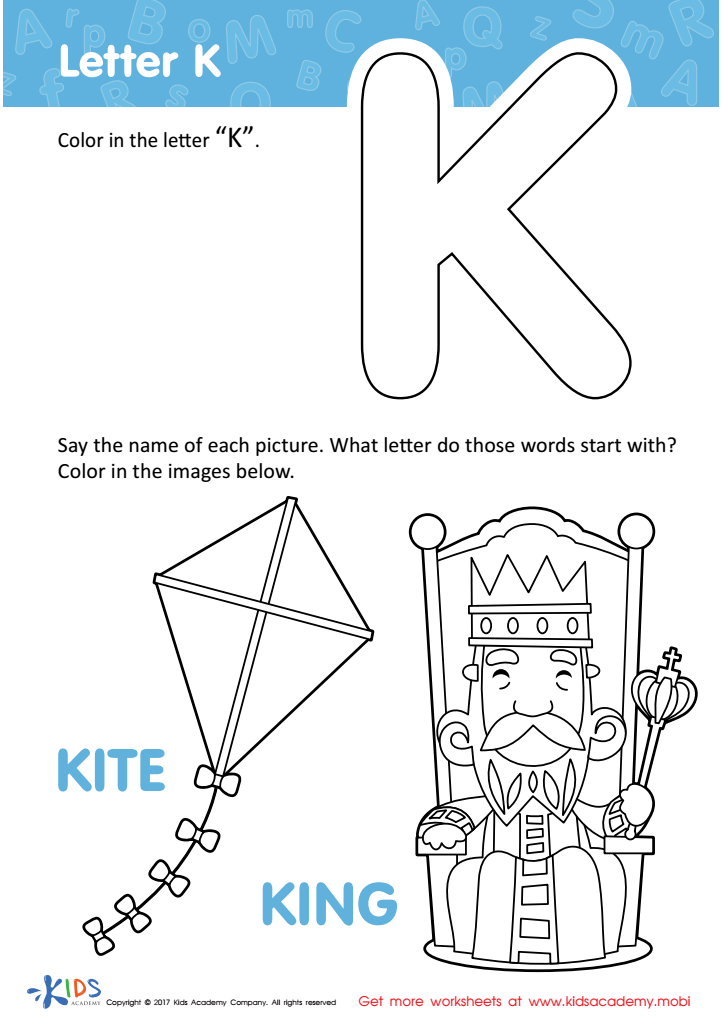

Letter K Coloring Sheet
Teaching the letter "K" to children aged 4-7 is essential for several reasons. At this early developmental stage, children are building the foundational skills necessary for reading and writing. Recognizing the letter "K" and its corresponding sound is pivotal in developing literacy. The letter "K" appears in many common words like "kite," "kangaroo," and "kite," helping children expand their vocabulary.
Learning the alphabet also boosts cognitive development in young children. Differentiating between letters, including the uniquely shaped "K," enhances their visual discrimination skills, a crucial component of early learning. By focusing on "K," parents and teachers can engage children with fun, multisensory activities like tracing the letter in sand, creating "K" crafts, and storytelling.
Additionally, mastering the letter "K" encourages phonemic awareness. Understanding that "K" often represents the /k/ sound aids in breaking down words phonetically, an important reading skill. Engaging children in playful, interactive lessons that include a variety of learning modalities can make this process enjoyable and effective.
In conclusion, caring about the letter "K" involves viewing it as a significant building block in a child's literacy journey, providing benefits that extend beyond simple letter recognition to support overall language development and cognitive growth.
 Assign to My Students
Assign to My Students








